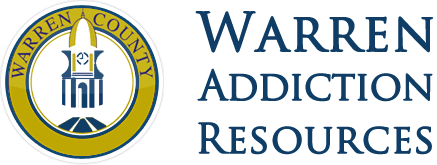What Happens During Addiction Treatment?
There are some things that you should expect when you enroll in an addiction treatment program. For instance, most of these facilities will completely evaluate and assess your mental and physical health before providing you with a diagnosis for addiction. In some cases, they might even come up with a dual diagnosis if you are struggling with a substance use disorder and other co-occurring mental health or medical disorders.
The purpose of evaluation is to ensure that you have a proper treatment plan. Typically, addiction treatment programs will format this plan so that it applies to your individual situation, and reflects your unique needs and requirements for evaluation.
The treatment plan created from the diagnostic evaluation will then be used to determine the intensity, level, types, and duration of the services that you will receive. They will also prove useful in managing your treatment over the course of time.
Understanding Addiction Treatment
In many cases, you will find that the course of your addiction treatment will be specific and unique to your life circumstances and personality. However, there are other strategies that might be offered either singularly or combined to improve your chances of recovery. These strategies and services include but are not limited to:
1. Medically Managed Detoxification
If you were diagnosed with a long standing or severe substance use disorder, you might require medical detox services. This is also the case if you received a dual diagnosis as we explained above.
The goal of medical detox is to ensure that you go through the withdrawal process under a carefully managed and supervised program. This way, the addiction treatment program will ensure that it addresses all the potentially severe and life-threatening medical consequences that may arise when you suddenly stop using drugs.
Often, your medical detox will be supervised by physicians, nurses, and other medical professionals as you go through the process of eliminating drugs from your system. Even so, medically managed detoxification will only address your physical dependence, withdrawal symptoms, and drug cravings.
This effectively means that it cannot treat the psychosocial, behavioral, and emotional aspects of your chemical dependence. As a result, you will need additional addiction treatment to improve your chances of recovery.
2. Individual Therapy
After you have been through detox, you will get the opportunity to work with professional therapists, psychologists, social workers, and/or counselors. This will allow you to understand all the factors leading to your compulsive substance abuse.
Individual therapy is also useful because it will teach you new coping strategies that you can use to deal with your drug related compulsions. These strategies may also help you stop your chemical abuse and addiction.
After you have established therapeutic trust with your counselors, you will learn more about yourself, your addiction, and how you can turn your lifestyle around from drugs and alcohol.
Today, addiction treatment centers use a wide variety of therapeutic approaches. Additionally, an expanding body of research has been documenting the approaches that are most effective for particular populations. For instance, women and teens tend to benefit more from motivational enhancement therapy than men.
3. Group Therapy
Many addiction treatment providers will also offer group therapy and counseling as part of the rehabilitation program. This means that you can benefit from the mutual support provided in these group settings.
By participating in the group format of therapy, you will be able to share insights, exert group accountability on your individual behavior, and reinforce the therapeutic gains that you and the other group makes achieve.
Often, this type of therapy will be provided to you and other people who share your common unresolved issues and experiences. These shared experiences might be in the form criminal justice system involvement, parenting focus, gender specific focus, and trauma survival.
4. Others
There are many other things that happen during addiction treatment, including but not limited to:
- Aftercare planning
- Case management
- Family strengthening
- Health services
- Medical services
- Pharmacological therapy
- Referral to other addiction treatment services, such as sober living and transitional living facilities
- Relapse prevention
- Toxicology screening and ongoing monitoring
- Vocational rehabilitation
Getting Help
Irrespective of what happens during addiction treatment, you should always remember that the goal would be to return you to a state of self-sufficiency and productivity. Without these services, it might be difficult for you to overcome your substance use disorder and any other co-occurring mental health disorders that you have been diagnosed with.
As long as you are able to follow the addiction treatment plans created by the drug rehab program that you enrolled in, it might be possible for you to achieve full recovery and turn your life around from drugs and alcohol to sober and responsible living.
CITATIONS
https://academic.oup.com/alcalc/article/36/1/2/137995
https://d14rmgtrwzf5a.cloudfront.net/sites/default/files/675-principles-of-drug-addiction-treatment-a-research-based-guide-third-edition.pdf
https://pubs.niaaa.nih.gov/publications/arh312/111-118.pdf
https://www.drugabuse.gov/publications/principles-drug-addiction-treatment-research-based-guide-third-edition/drug-addiction-treatment-in-united-states/types-treatment-programs
https://www.drugabuse.gov/publications/principles-drug-addiction-treatment-research-based-guide-third-edition/principles-effective-treatment
https://www.hopkinsmedicine.org/substance_abuse_center/index.html
https://www.nature.com/articles/tp2015101
https://www.ncbi.nlm.nih.gov/pmc/articles/PMC1852519/#S3title
https://www.ncbi.nlm.nih.gov/pmc/articles/PMC1852519/#S9title
https://www.tandfonline.com/doi/abs/10.3109/15360288.2015.1037521#.Vdek0_lVikp
We can help you find the right treatment facility that best fits your overall needs and financial requirements.
Drug Rehab Centers by State
Select a State:
- Alabama
- Alaska
- Arizona
- Arkansas
- California
- Colorado
- Connecticut
- Delaware
- Florida
- Georgia
- Hawaii
- Idaho
- Illinois
- Indiana
- Iowa
- Kansas
- Kentucky
- Louisiana
- Maine
- Maryland
- Massachusetts
- Michigan
- Minnesota
- Mississippi
- Missouri
- Montana
- Nebraska
- Nevada
- New Hampshire
- New Jersey
- New Mexico
- New York
- North Carolina
- North Dakota
- Ohio
- Oklahoma
- Oregon
- Pennsylvania
- Rhode Island
- South Carolina
- South Dakota
- Tennessee
- Texas
- Utah
- Vermont
- Virginia
- Washington
- West Virginia
- Wisconsin
- Wyoming
